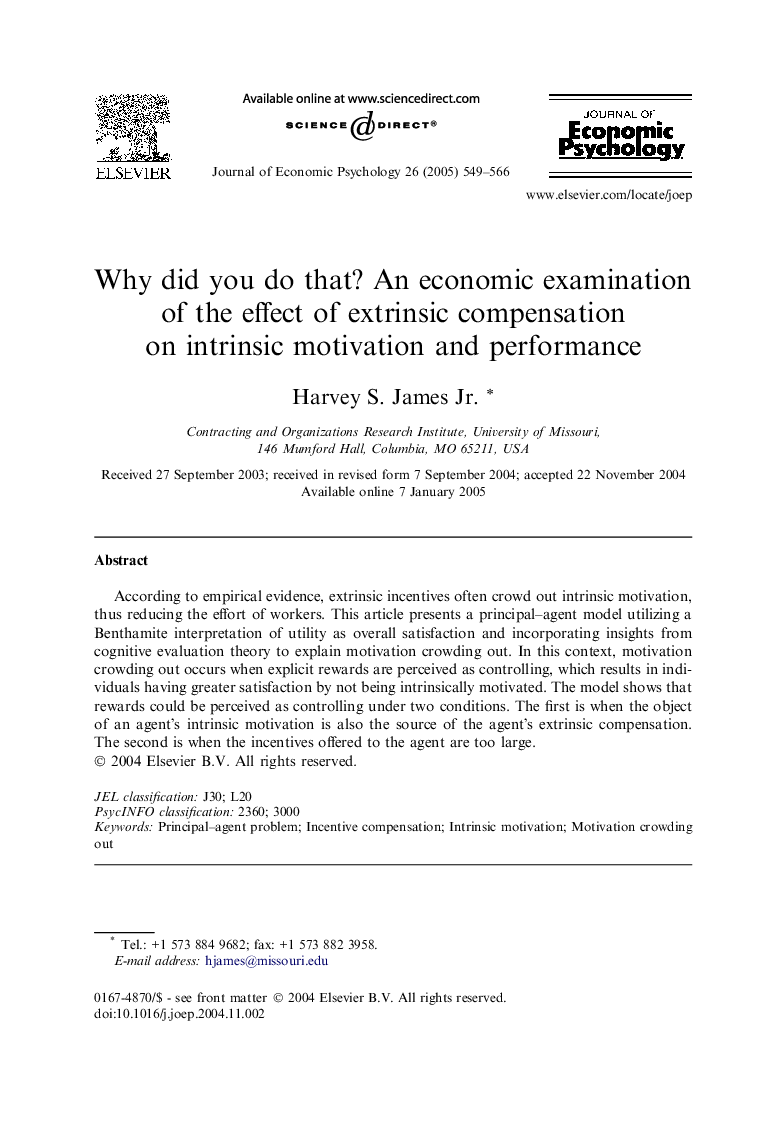| Article ID | Journal | Published Year | Pages | File Type |
|---|---|---|---|---|
| 10438371 | Journal of Economic Psychology | 2005 | 18 Pages |
Abstract
According to empirical evidence, extrinsic incentives often crowd out intrinsic motivation, thus reducing the effort of workers. This article presents a principal-agent model utilizing a Benthamite interpretation of utility as overall satisfaction and incorporating insights from cognitive evaluation theory to explain motivation crowding out. In this context, motivation crowding out occurs when explicit rewards are perceived as controlling, which results in individuals having greater satisfaction by not being intrinsically motivated. The model shows that rewards could be perceived as controlling under two conditions. The first is when the object of an agent's intrinsic motivation is also the source of the agent's extrinsic compensation. The second is when the incentives offered to the agent are too large.
Related Topics
Social Sciences and Humanities
Business, Management and Accounting
Marketing
Authors
Harvey S. Jr.,
